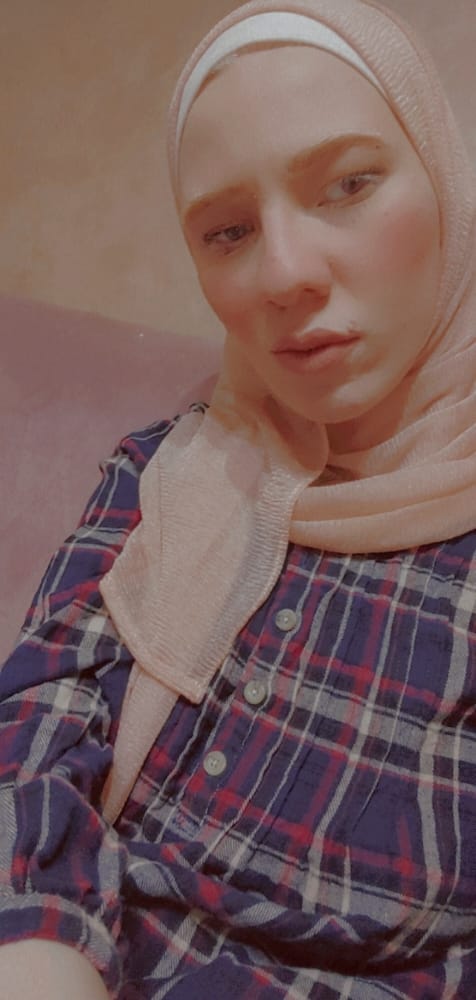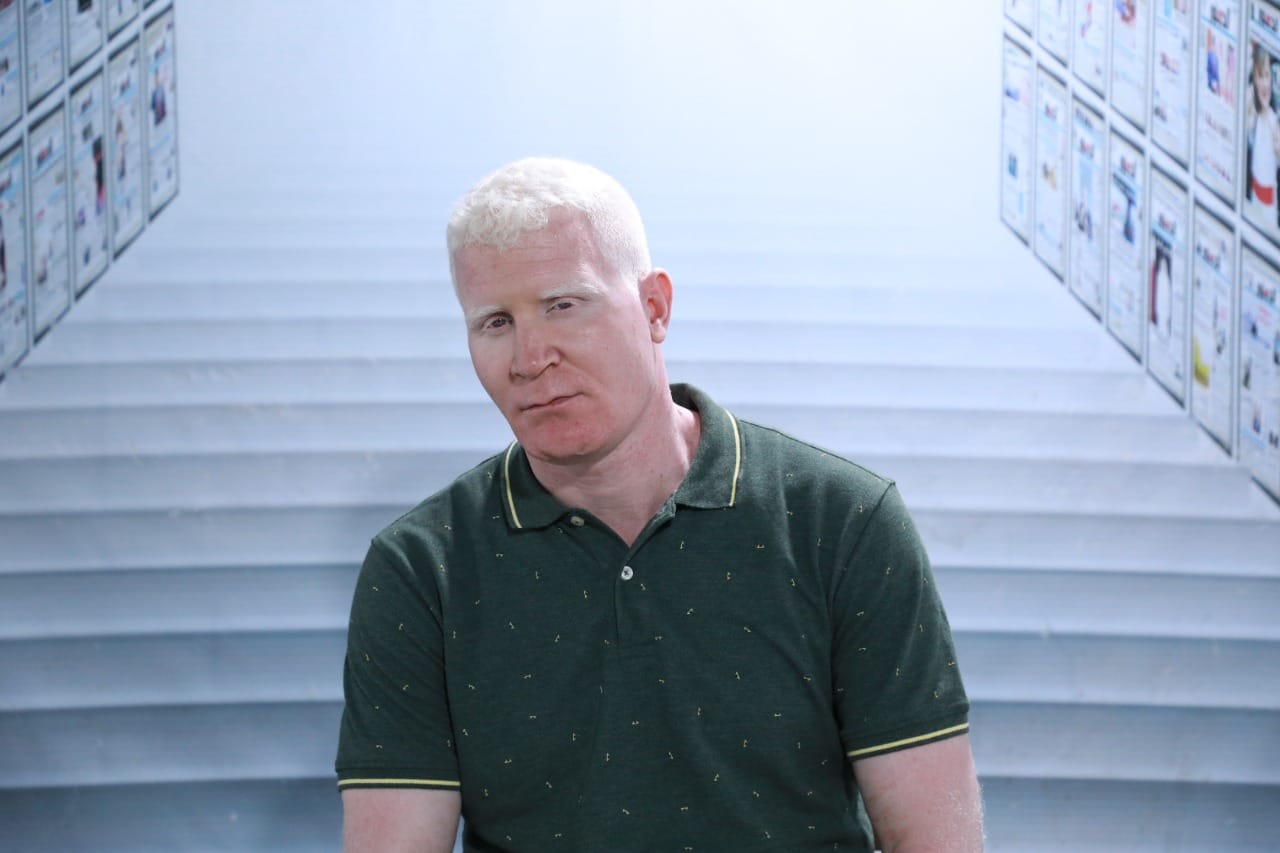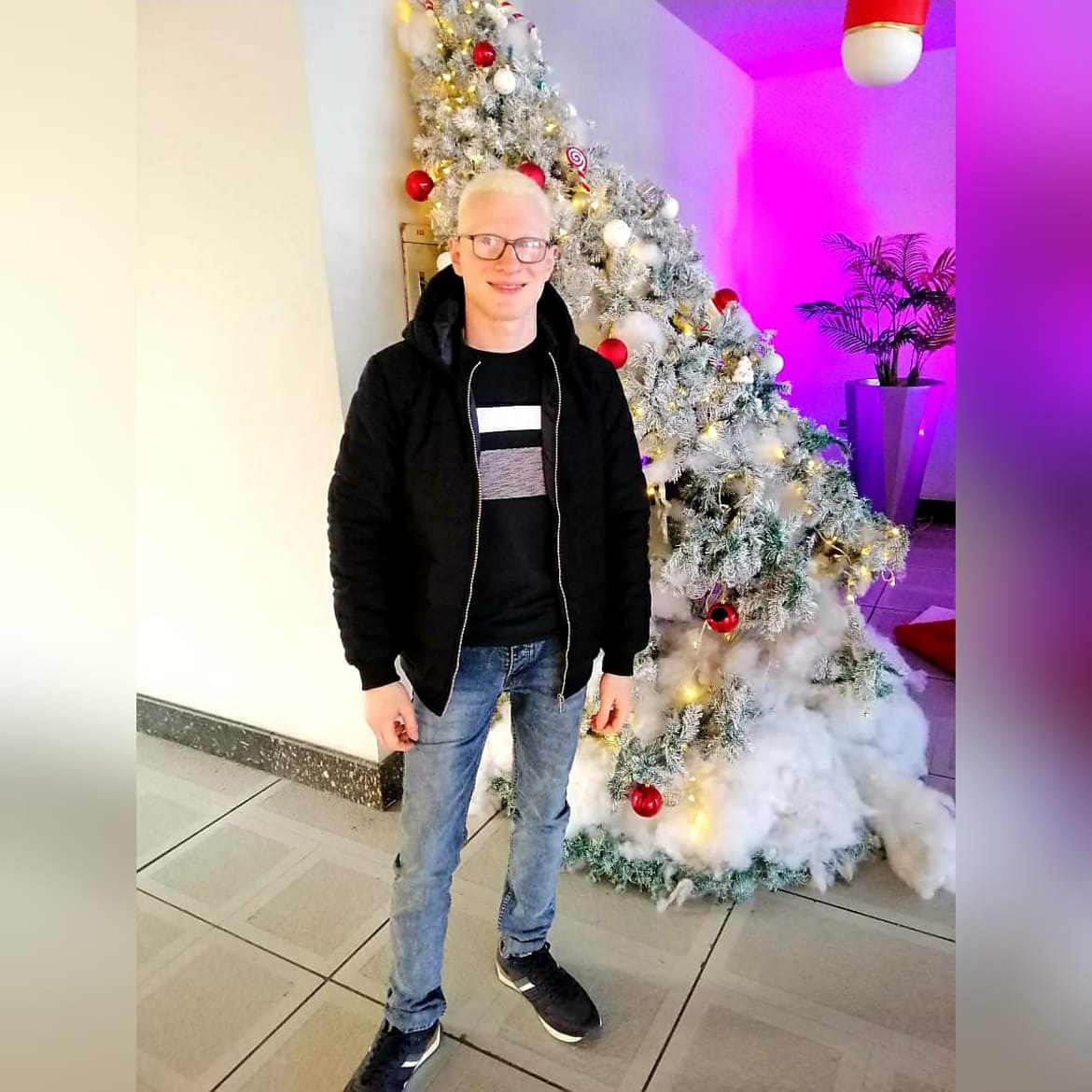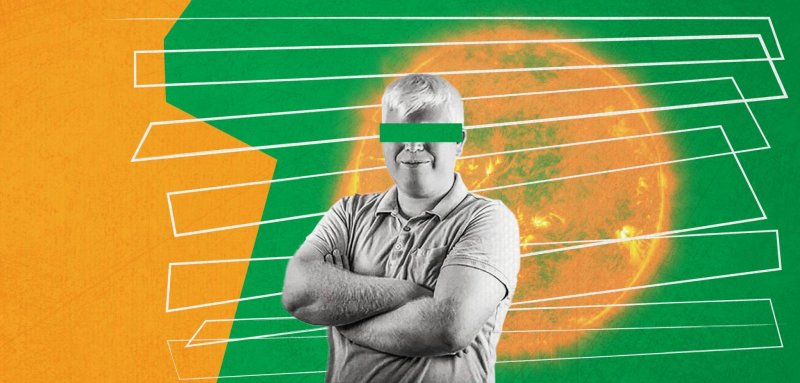You recognize them from their extremely pale skin, transparent eyes, white or red-brown hair, and freckles that cover most of their facial features. They wear semi-winter clothes in the summer, so that the sun would not burn their skin. These are albino people, that is, people with albinism or leprosy.
Climate change manifested in high humidity and rising temperatures has come as a calamity on the lives of albino people who are forced to wear semi-winter clothes in fear of the sun's rays. Sunglasses never leave their eyes, with a hat always resting above their heads to shelter their skin from the heat of the sun, because they are more likely to get skin cancer.
Climate change manifested in high humidity and rising temperatures has come as a calamity on the lives of people with albinism
Albinism is a genetic mutation that results in the decrease or the absence of melanin, which is responsible for the color of the skin, eyes, and hair. Melanin protects the skin from ultraviolet rays. Year after year, summers are getting hotter and more intense, adding to the existing string of suffering that albino people encounter in their daily lives.
"I wish I could go out"
Afaf Magdy, 24, tells Raseef22, "We albinos have a genetic mutation, which is a deficiency in the melanin pigment responsible for coloring the body. This results in other effects, including a weak vision, which we are born with and gradually gets worse with age. As for the suffering we face in the summer, any prolonged exposure to sunlight causes skin burns and may lead to cancer. However, I try to expose myself to the sun as long as possible in order to get vitamin D, which most albinos have a deficiency in."
The greatest struggle for Afaf, who lives in Cairo, is the bullying she has faced from a young age, which continued at a strong pace until she reached high school, but began to fade when she enrolled in university and obtained a degree in arts and history from Helwan University, with good grades.

Afaf Magdy
The dilemma of getting a steady job is what worries Afaf today, as she has been constantly changing jobs. She has worked at a gym, a hospital, and an insurance company. She says, "Right now, I do not have a steady job. I teach history and give private lessons to students at home, while I'm trying to get a steady job at a school. There are albino people who have fallen victim to the notion that they are not fit for work and have isolated themselves due to the harsh words and way of thinking they’ve been subjected to. But we are not less than anybody in any way. We are just different and that's the secret of our beauty."
She comments on the suffering she is experiencing from the high temperatures in recent years, "Many times, I wish I could go out of my house, but the high temperatures stand in the way, even if I wear a hat, or use sunscreen. And here lies another dilemma, these creams cost me about a thousand Egyptian pounds per month (51 US dollars). Those who do not have the financial capabilities to protect themselves will be left in a bad state, since we must take care of our skin so that it does not get burns or skin cancer, and then become disfigured."
I love all seasons of the year, but my greatest suffering lies in the summer, and in recent years this suffering has increased. Every year the heat is more intense than the one prior. There are days the sun is so hot and intense that I do not leave the house at all
Enemy of the Sun
Ahmad Abdel Jawad, 32, a young man with albinism, lives in Beni Suef. He tells Raseef22, "I have four brothers. I am the only albino among them, but my mother's uncle and one of my father's relatives are albinos, so I inherited the genes from them, and my suffering began from the time of my birth. My eyesight was very weak, which prompted my father to take me to doctors until my vision improved over time, but it is still weak, which has affected my studies. In elementary school, I could not clearly see what the teacher would write on the board, especially mathematical equations. The situation changed in middle school, since the teacher would seat me next to him and write me the questions in my notebook, and that’s when I excelled in math."
He adds, "I suffered from bullying at school, and sometimes on public transport. We albinos have severe sensitivity to bullying that makes us go into isolation because of hurtful words. The bullying hasn't changed, but it's me who has changed. I remained isolated and closed in on myself for 25 years, during which I turned into an anxious person who escapes from stress by sleeping. Just six years back I came back to life and started engaging with people."
"I am the enemy of the sun," Ahmad had said in a sad tone when his hand was burned a few days earlier while he was sitting by the window in a taxi. He treats these burns using creams with price tags as scorching as the sun’s heat. He adds, "I bought a pack of creams for two hundred Egyptian pounds, and it served me for only two uses. It is a medium-quality cream, while the good-quality original pack costs 400 Egyptian pounds. I am supposed to use these creams every two hours, which sums their total cost to about 2,000 Egyptian pounds per month. In recent years, this suffering has increased with the rising temperatures."

Ahmad Abdel Jawad
Ahmad, despite having a degree in agriculture, in the department of food industries and dairy products, is currently working as a distributor in a shipping company during the daytime hours under the heat of the sun, which has deprived him of a high-paying job, because this would have forced him to be exposed to the sun directly for many hours. The job didn't suit him since most of the salary would be spent on creams to treat his skin.
The young man hopes for solutions that may help people with albinism cope with life, "Most of us are highly qualified. I hope we get trained and made capable to fit the labor market because we need special training, and to have job opportunities in administrative jobs that do not require direct exposure to the sun. I hope that the state provides us with sunscreen creams on a monthly basis, and optical aids that help us see clearly and integrate them into the fund to support people with disabilities."
I hope that the state provides us with sunscreens on a monthly basis, and optical aids that help us see.
Missed Opportunities
George Magdy, a 22-year-old albino resident of Alexandria, shares his story with Raseef22, "I have five sisters, and I'm the only albino in the family. I suffered from bullying in elementary school and thus hated school. I used to pretend to be asleep so as not to go to school, but now life has changed with some people becoming more aware of the nature of our condition, especially when I went into university."
The young man points out that in high school he worked in a pharmacy, and got some decent experience, which prompted the pharmacy owner to assign him with the task of data entry for the medicines, but because of the small size of the font, he found it difficult to read the words, so he hated his job and ended up quitting. This was not the only opportunity George has lost. He currently works as a packing worker in a company despite having a degree in management systems and information. And when the manager wanted to entrust him with the responsibility of filing the company’s accounts, luck wasn't on his side once again due to his poor eyesight. This opportunity was like a promotion for him, advancing him from a worker to an accountant with a higher salary, but he lost it.

George Magdy
"My current job doesn't expose me to the sun, which is the main thing that occupies my mind before starting any new job, as we are 50 percent more likely to develop skin cancer than others," he adds, noting that he walks under the sun only when absolutely necessary, while avoiding going out in the afternoon, and wearing long-sleeved shirts despite the hot weather.
Sunscreen creams represent a great suffering for people with albinism, according to George, especially those who do not have a stable financial situation, as they are overburdened by the price of these creams. The price of one pack is about 250 Egyptian pounds, and lasts for just two or three weeks. There are more expensive or cheaper types. He only uses those creams on days he has been exposed to the sun. His working hours begin in the morning and carry on into evening, so he does not need to walk for too long under the sun, unlike other albinos who may have to. "If the state supports these necessities and provides them to us, our situation would be much better," he says.
Many times I wish I could go out of my house, but the high temperatures stand in the way, even if I wear a hat, or use sunscreen. And here lies another dilemma; these creams cost me about a thousand pounds per month
“I love all seasons of the year, but my greatest suffering lies in the summer, and in recent years this suffering has increased. Every year, the heat is more intense than the one prior. There are days the sun is so hot and intense that I do not leave the house at all. These are the days when weather forecasters warn against sun exposure. That is when I never go out of the house.”
In this regard, Dr. Nahla Abdel-Tawab, a bacteriology, immunology and bio nutrition consultant, and head of the department of bacteriology at Cairo University Hospital, tells Raseef22, "When people with albinism are exposed to the sun, they get burns ranging from simple to severe ones, so they must wear light protective clothing. They must protect themselves from the sun and not be exposed to it anytime from eleven o'clock to four o'clock in the afternoon, and they must also wear a hat on their heads."
She goes on to say, "Moving too much under the sun can lead to skin cancer, provided they have potentially precarious genetic genes at risk of getting infected. They can use sunscreen, of course, but the best advice is not to be exposed to sunlight as much as possible."
Raseef22 is a not for profit entity. Our focus is on quality journalism. Every contribution to the NasRaseef membership goes directly towards journalism production. We stand independent, not accepting corporate sponsorships, sponsored content or political funding.
Support our mission to keep Raseef22 available to all readers by clicking here!
Interested in writing with us? Check our pitch process here!





